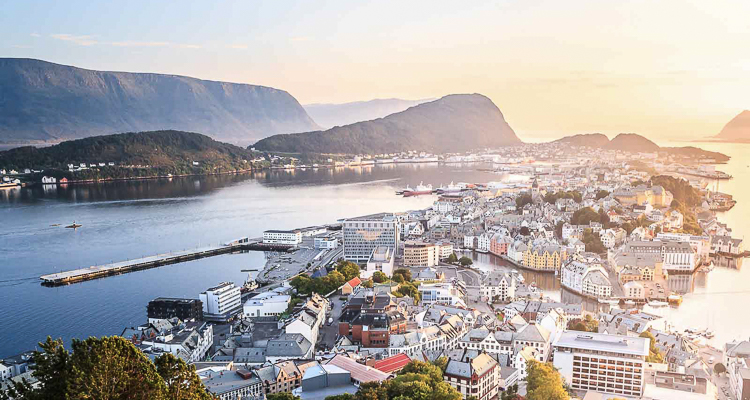BY: DANIEL WATERBORNE
For the twelfth year in a row, Norway has been named the best country on earth to be a human in. According to the Human Development Report, Norway ranks the highest in life expectancy at an average of 81 years. Norway also ranks highest in education and standard of living. The country ranked eight places above the United States and fourteen places above the United Kingdom.
It’s no mystery why Norway is a consistent overachiever. While other countries focus on promoting pursuits of personal capital, Norway puts precedence on social capital. The result is a sense of cooperation that vaults the common good. The country is home to some of the best paid blue-collar workers and some of the worst paid CEOs. In the United States, some CEOs make 300 times more than the typical American worker. Norwegians have long since realized that an unfairness of income results in limitations placed on social mobility. This can lead to a bubbling of mistrust and political instability, which can affect not only the overall health of society, but the individual health of its citizens. By not excluding citizens from education or healthcare based on income, by employing a system of progressive taxation, Norway closed a wealth gap and stopped letting citizens fall through the cracks.
If you visit Norway, you will be hard pressed to find the towering glass-skyscrapers and the retail mecca of sprawling department stores. The country has chosen to forgo the “I shop therefore I am mentality” and has ditched the dangling diamond encrusted carrot-stick of materialism. Rather than embrace excess, Norway has embraced modesty. Two key-predictors of the happiness of a population are social support and generosity. While countries with lower rates of taxation may enjoy similar healthy-life expectancy, GDP per capita and freedom, social values promoted by Norway’s social structure have helped secure its place among the happiest countries of the world.
You will be hard pressed to find the towering glass-skyscrapers and the retail mecca of sprawling department stores. The country has chosen to forgo the “I shop therefore I am mentality.”

It is hard not to feel inspired when you live in a country of dramatic mountain landscapes, cascading waterfalls and sun-kissed fjords. Embracing nature is not only a part of Norwegian national identity—it’s also been a part of Norwegian law since 1957. Allemannsretten ensures that everybody can enjoy the wilderness on equal terms. The law enshrines Norwegians’ right to roam, ensuring that citizens and visitors have free access to the countryside and national parks. The belief is that enjoying nature should not be income-restrictive, but is rather a vital part of the human experience and thus an innate human right.
This social appreciation of nature has elevated the society’s responsibility to protect it. The country is a proponent of state capitalism, and controls many of the largest corporations by maintaining significant shares. While the idea might be off-putting to those seduced by the hedonism of free markets, it makes sense when you consider Norway’s economy is heavily reliant on the use of natural resources, such as fishing, logging, mining and deep-ocean oil extraction. The choice to not concentrate the power of business ventures that develop aspects of the environment in exclusively private hands is in the best interest of all Norwegians.
Norwegians’ right to roam ensures that citizens and visitors have free access to the countryside and national parks.
While Norway’s economy is currently heavily reliant on the production of oil, the country has made significant strides at preparing for a post-oil future. Actually they began preparing for the “green-shift” in the 1990s by establishing the sovereign wealth fund, which is now valued at $900 billion. Now the largest of its kind, it has gained significant economic influence. Earlier this year Norway divested $8 billion from the coal industry. In 2016, Norway will further make significant investment into green technologies such as alternative fuel and biotechnology.
With a population of just 5 million and a land mass of 385,178 km², there are roughly only 14 people per sq. km. By thinly-spreading the population among isolated fishing villages, townships and modest urban centres, Norway has not succumb to the burdens that overpopulation places on a society.
The country is a global leader of human rights and maintains a significant cultural influence by holding control over the Nobel Peace Prize. Norway takes seriously the sentiment that “a society can be judged by how it treats its weakest members.” Even aspects of Norway’s prison system refuse to promote suffering. In Bastøy Prison, prisoners are not caged like animals. Instead they live in communal cottages on a private island and are given the opportunity to fish, horseback ride, cook their own meals and hold a respectable job. This is because a single Norwegian value is held above all—empathy.

